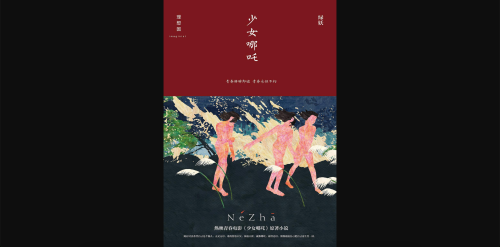#studyblr
The Most Satisfying Feeling I Get from Learning Chinese
One of the most satisfying feelings I’ve experienced in learning Chinese is the feeling I get after hearing a new word and just *understanding* it. This isn’t that hard when reading (and that’s why we love 汉字), but when it comes to listening, it’s a whole different story. So the moments when I’ve heard a new word and intuitively known what 汉字 it consists of plus its meaning of have made me feel so accomplished. Over time I’ve jotted down some of these words, and I thought they would make a fun post.
- 迷失 míshī - to lose (one’s bearings) / to get lost
I was able to understand this word thanks to knowing words like 迷路, 迷茫, 失去, and 消失. I first remember identifying this word in Escape Plan’s song 夜空中最亮的星.- 旅途 lǚtú - journey / trip
I know a lot of words with 旅 like 旅游, 旅行, and 旅程, and I was also familiar with 途 via 路途 and 前途. So 旅途 was very easy for me to understand.- 心愿 xīnyuàn - cherished desire / dream / craving / wish / aspiration
心愿 is similar in meaning to 愿望 and 意愿, which I already knew. I believe I first heard this word in the song 有点甜 by 汪苏泷 and BY2.- 高傲 gāo'ào - arrogant / haughty / proud
I heard this word in the song 寻宝 by 沈以诚. I’ve listened to this song many times, and one day it just clicked! It’s all thanks to the similar words 骄傲 and 傲慢.- 安稳 ānwěn - smooth and steady
There are so many words with 安 like 安定 and 平安. I also know some 稳 words, such as 稳定 and 平稳. So I was able to put two and two together for 安稳.- 还原 huányuán - to restore to the original state / to reconstruct (an event)
The meaning of 还 here is very familiar from 还给 and 还清. Also, I know a lot of words with 原: 原来, 原本, 原始, 原先.- 选拔 xuǎnbá - to select the best
There are so many 选 words I see all the time like 精选, 选举, and 选择. I also know 拔 from 拔苗助长 and 自拔, so I was able to piece together the overall meaning of 选拔.- 解压 jiěyā - to relieve stress
I’ve already learned the word 缓解 which is related in meaning. Also, I’ve learned 施压 (or 施加压力), which is basically the opposite of 解压.- 感人 gǎnrén - touching / moving
I think this word is pretty easy to put together if you know similar words like 感染, 感动, and 动人.- 认输 rènshū - to concede / to admit defeat
I distinctly remember hearing this word in the Tanya Chua song 救生圈. I think I was able to understand it thanks to knowing that 认 can mean to admit like in the words 承认 and 公认.Here’s to many more of these satisfying moments in 2022!
Since making this post, I’ve been taking note of other instances. Below are 15 more words I was able to get from hearing alone.
- 离散 lísàn - (of family members) separated from one another / scattered about / dispersed
Of course, I know many words with 离, such as 离开 and 脱离. I also know some words containing 散, like 分散 and 散发. So it’s not a big leap to figure out what 离散 means. - 星体 xīngtǐ - celestial body (planet, satellite etc)
I was able to guess the meaning of 星体 because I am already familiar with 星球, which has a very similar meaning. I know it from Star Wars, aka 星球大战! But 星体 is from the EXO-C version of History. - 堆积 duījī - to pile up / to heap / accumulation
I basically understand 堆积 as 堆满 plus 累积. These are two words which I’ve learned previously. - 魅惑 mèihuò - to entice / to charm
Here’s another example where I know two similar words that I can essentially “combine” to get 魅惑. The words I already knew are 魅力 and 诱惑. - 插播 chābō - to interrupt (a radio or TV program) with a commercial insert, breaking news etc / to put a call on hold
I know 播 from words like 广播 and 播放. I also know 插 primarily from the expression 插一句. And thanks to the context (I heard 插播 used while watching a Chinese TV show), I was able to put two and two together. - 杂乱 záluàn - in a mess / in a jumble / chaotic
乱 is such a common character, I see it all the time. As for 杂, I know the word 嘈杂, and my brain seemed to think that was somehow similar, and I guess I was right? There aren’t many characters pronounced za after all. - 掩埋 yǎnmái - to bury
埋 is a 多音字, and I know the mái reading from the word 埋葬. I don’t know 掩 as well, but I’ve encountered the word 掩盖, so I was able to guess that the yan I was hearing was probably 掩. - 期盼 qīpàn - hope and expectation / to anticipate / to look forward to / to await expectantly
期盼 is very similar to the words 期望 and 盼望. I hear 期望 all the time. 盼望 is not a word I encounter as often, but I’m familiar enough with it. - 任一 rènyī - any / either
Don’t quote me on this, but I understand 任一 as essentially meaning 任何一个. They at least seem to be interchangeable in the contexts I’ve heard 任一 in so far. I either heard it in 青春有你3 or 创造营2021, I can’t remember. - 见证 jiànzhèng - to be witness to / witness / evidence
I already knew 证据, meaning proof or evidence, and I was vaguely aware of 证 being used in other words having to do with evidence and witnessing. - 打散 dǎsàn - to scatter / to break sth up / to beat (an egg)
Not gonna lie, I wouldn’t have guessed the beat an egg meaning, but I was able to approximate the other meaning(s). There are so many words starting with 打, so it’s a familiar structure. - 支撑 zhīchēng - to prop up / to support / strut / brace
If you watch the 创造营 series, you have heard the words 支持 and 撑腰 about five million times: party girl之道 姐妹为你撑腰~ 支撑 is very similar in meaning. - 自律 zìlǜ - self-discipline / self-regulation / autonomy (ethics) / autonomic (physiology)
I kinda know the word 纪律, meaning discipline. I think being familiar with how 自 is used in words like 自卫, 自学, etc. helped as well. - 方位 fāngwèi - direction / points of the compass / bearing / position
I think I heard this word in a song, but I can’t remember what song at the moment. I connected it to the words 方向 and 位置. And 百科 defines 方位 as 方向位置, so I was spot on! - 停歇 tíngxiē - to stop for a rest
I know many words containing 停, including 停止, 停留, and 暂停. I don’t think I actually know many words with 歇, but I was aware of its dictionary definition for some reason. Must have looked it up at some point.
Too many of these are from survival shows…I guess that shows that I am learning from them!
I’ve been trying (admittedly not very hard) to read a full book in Chinese for a couple years now. I think I’ve tried 2 or 3 times? Well now I’m trying again with the book 《少女哪吒》 by 绿妖 (Shàonǚ Nézhā by Lǜ Yāo). I’m posting this in hopes that it will help hold me accountable so I actually finish this book!
Why have I picked this book?
- It’s only about 200 pages long
- The pages are physically small, and the text isn’t dense
- It’s a short story collection
- At least so far, the stories are slice of life and set in recent times
From my past attempts at reading a book, I know that I’ll feel discouraged if it’s taking me forever to get through a page. Also, I’m hoping that having six short stories ensures I don’t get bored or bogged down. Lastly, I didn’t want to make things harder for myself by picking a historical or fantasy novel.
One thing that I struggle with with reading in Chinese is resisting the urge to use Pleco. The problem is when I encounter characters that I don’t know. I can guess the pronunciation of course, but I can’t stand the thought of being wrong and then “learning” an incorrect pronunciation! I don’t mind guessing the meanings of new words if I recognize the characters (I try to just look up those words if I’m getting confused or if they repeat a lot so I want to learn them better). But I just don’t see myself ever being able to resist the urge to look up unknown characters! I’ve tried not looking them up and always end up going back after because I can’t take it. Wish me luck~
Post link

Hello everyone,
Here I am after more than a month of vacation. I have thought a lot about the past academic year during this summer. It was a tough one, and it challenged me a lot.
In the university that I attend, exams are very close and, to do all of them in time, you must study for two or three exams simultaneously. It requires the ability to prioritize, to dedicate the right amount of time to every subject.
Prioritizing was not immediate to me, and I had to train myself. Here are a few tips that I use when planning the study of multiple subjects at the same time:
1. Split the day:
This technique is good if you are preparing exams of different importance and complexity. Identify the moment of the day in which you are more productive, and dedicate that time to the most complex subject. Then, give time to the second most productive moment for a less complicated exam. If you have a third subject, split the day into three parts, and so on.
For instance, I am more productive in the morning, a bit more distracted in the afternoon, and way less active in the evening, so I base my plans on this scale.
To know the time of the day in which you are more productive, I advise the chronotype test. We all are classifiable as four animals, with different features and routine inclination. For example, I am a dolphin, so I am more productive late in the morning, after some workout and a cold shower. To find your chronotype, do the test here: https://www.doctoroz.com/quizzes/whats-your-chronotype. After having done the quiz, you will periodically receive emails deepening your chronotype.
Also, splitting the day makes studying less boring. I tend to fall asleep if I spend long hours on the same topic while switching from a subject to another waken me up. I would not be able to study for eight hours for the same exam, while I can study four hours for one exam, three for another and one for a third one. By the way, this point is very individual: if you do not fit into this type of planning, look at point 2.
2. Make weekly plans:
This is good whether you are studying for exams of the same importance, or if you prefer to dedicate all day to the same subject.
Dedicate every day of the week to a different exam. You can choose to assign more days for one exam rather than another, based on their complexity.
I use this technique a lot during classes when I do not have all day to study. When I still have to get familiar with the subject, I prefer to give it all day, without any time limit.
3. Match topics:
Generally speaking, the semester’s exams have criteria. You are likely to have similar subjects, or at least with some points in common. Identify the repetitions and the joint topics, and study them together. It will make you save time and have a complete view of that specific argument.
This is all! Let me know if you have some more suggestions that you would like to share. Good luck to all of you with your exams

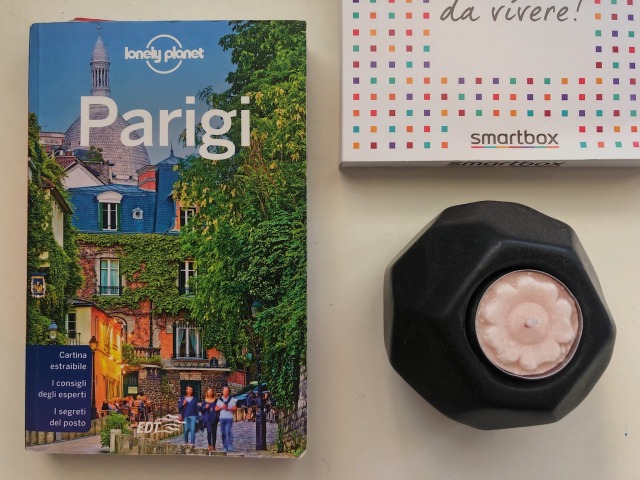
September 7th 2021
Paris has always been my dream city and due to covid I had to postpone my journey there.
I can finally say that I booked my trip in the capital of France and I’ll be there in a month
Someone said that you live every trip three times: when you dream it, when you live it and when you remember it.
I want to deeply enjoy every part of it and I’m obsessively planning for this trip

Hi guys,
Here I am talking about my study method for the last exam of my second year of med school.
Pharmacology was the most demanding exam I have faced so far, but I found it interesting as well.
I needed all the study techniques I had learned so far in med school to cope with this subject, and I am satisfied with the result.
There is a lot to learn, many formulas to understand and many names to memorise, but it is one step closer to getting into the thick of medicine.
Here is how I dealt with this exam. We can summarise my study method into three parts:
1-Organisation (during lessons):
during the first part, I went to classes and took notes. I later quitted the lectures to focus on individual studying, but I needed to go to lessons at least for the first month. Indeed, I felt the need to see what the professor focused, and what was irrelevant instead.
Also, lectures were helpful to learn the basic concepts of pharmacology. I understood what pharmacokinetics, pharmacodynamics or pharmacoeconomic are about and their fundamentals.
After having gone to classes, I reorganised the material. I did not use the book that much. Indeed, pharmacology is a subject that continuously changes, so every text is old. I consulted the book only for the pharmacokinetics part when I could not understand some formula or definition.
In this phase, it was fundamental to make a scheme. I got a copybook, and I enumerated the pages.
Helping myself with the syllabus, I identified the macrotopics. I used the first sheets for creating an index.
For every argument, I made an accurate scheme using different colours. I utilised all the tools that I knew to make it the more effective possible: I used charts,lists,tables, etc.
I also left some space for the mnemonics (I will deal with this point later in this post).
2-Comprehension
I had to abandon pharmacology for a while to focus on the other exams. When I went back to pharmacology, I restarted to read all my notes.
With a pen, I underlined the most important sentences, and I circledkeywords.
I dedicated this phase of my study to put all the pieces together. I comprehended how drugs act, what the reason for their side effects is, etc.
3-Memorisation
In the last part of my study, I used all the mnemonics I know to learn the names of drugs.
Usually, this is not the most demanding phase of my study. Quite the opposite, it required me much time to memorise all the information.
I created shortstoriesandacronyms to help my memorisation. I wrote these with a pencil in the spaces I had left during the schematization.
Recalling the arguments was vital. I did it alone and with the usual study buddy.
One of the more critical matters, in my opinion, is to select the relevant data. The programme is immense, and it is impossible to know everything, so a choice is needed. Making this selection with a friend makes it more manageable.
As usual, I did not study the day before the exam. If it is correct in general, this time, it was even more vital.
As I said, the syllabus is enormous, so you can not revise everything the day before. You may select the topics you struggle the most with, but having a look at them will only increase your insecurities, which might affect your performance during the exam.
After a long period of studying, relax and mentally prepare for the exam.
And this is all! I hope someone will find this helpful or at least interesting. Good luck to all of you with your exams

Hi guys,
Here I am with another post about one of the more demanding but fascinating exams in med school.
I am a physiology lover over anatomy, and it was a pleasure to study this subject, even though I admit it was tough.
When I first had a look at the syllabus, it seemed to me it was immense. In my University, it is a single exam, with the possibility of splitting it into two partial interims during the same exam session.
Since the coursework was enormous, I decided to break it into pieces, worrying about one part at a time. Every section was a macro topic, such as neurophysiology, physiology of the cardiovascular system, etc.
Here is what I did for every piece:
1.Attend classes: I think this is an unskippable point for the physiology exam. It is a subject that you must understand more than memorizing. Go to class, ask questions, take precise notes, and you will have done nearly half of the work.
2. Deepen: I used the book to add extra information to my notes, to have a complete view of the topic. Physiology is an enormous subject, so the professor does not have time to deal with all the material. Having a general idea of the omitted parts will be helpful to understand the subject better.
3. Schematize: at the end of every section, I made a minimal scheme. It was a sort of index of the topics, with titles and subtitles, to have a precise outline in my mind. I used different colours for every section to visually remember it.
After having gone through all the material, I picked up the pieces. With a general idea of the subject in mind, I read all my notes again. While reading, I hooped the keywords with a pen.
For every part, I wrote on a copybook the essential information, using colour coding. For example, for the cell physiology, which was purple, I wrote all the necessary formulas. For the neurophysiology, which was pink, I schematized the principal sensory pathways. For the endocrine system, I draw a chart of the main hormones and their characteristics.
Then I started recalling everything to understand whether I could build a speech on all the topics. I did this alone, speaking out loud but also with my usual study buddy.
Also, since it was a written test, I practised using the past rounds’ exams.
And that’s it! Hope this can be useful to someone, and good luck if you are preparing for this exam


August 3rd 2021
Went to my mum’s native village today
I find what Simon Biles did at the Olympics really inspiring. How often do we forget to take care of our mental health and do we keep pushing ourselves?


August 2nd 2021
Back home enjoying the summer ☀️
I’ve started reading a book about neuro plasticity which is definitely amazing

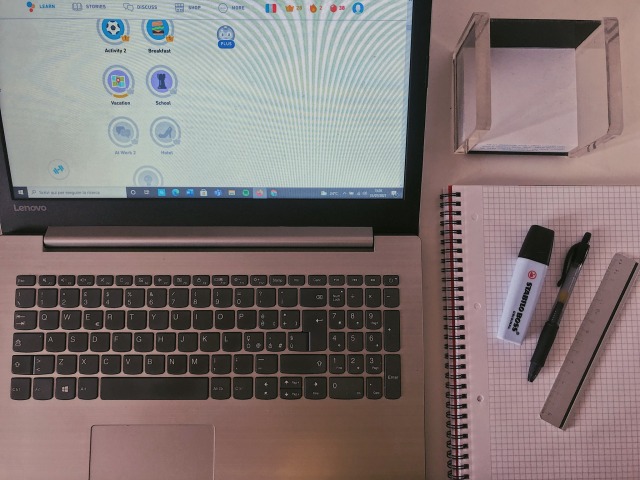

July 31st 2021
Got the second shot of vaccine today + enjoying holiday doing what I did not have time to do during the study session

Hello everyone,
I am so glad to announce that I just finished the second year of med school! I am sorry for having not being active on Tumblr during the last months, but now I am here to share my study methods for the exams of this session, beginning with neuroanatomy.
Neuroanatomy was, for me, the better part of the anatomy exam. It may seem chaotic when you start studying it, but I find so fascinating the way we are precisely organised and the abilities our brain allow us to have.
Since neuroanatomy might be hard to understand at first-lecture, I advise a layeredstrategy to approach this exam.
Also, I strongly suggest using an atlas to memorise the structure of the nervous system. I found Netter’s Atlas of Neuroscience very complete and understandable, and it is cheap too (I paid less than 20 euros).
Here are the steps of my preparation for this exam:
1) Reading all the material
When I first faced this subject, it seemed to me that I could not understand anything. Everything was so confused, with unclear terminology and references to structures that I did not know.
That is why I preferred to have a general look at all the material, without focusing on understanding in depth what I was reading, but trying to catch as much information as I could to have a basic knowledge of neurosciences.
During this phase, I attended classes, read my notes and read the book. After that, I drew a minimal mind map with main topics to start building a scheme in my mind.
2) Active comprehension and schematisation
After having gone through all the material, I quitted the classes and favoured studying on my own. I guess this is a personal decision: generally speaking, I find it vital to go to classes, but in this case, I felt I was losing my time. I realised I needed much more time than a two-hour lesson to comprehend a topic, so I could not focus, ending up distracting and wasting my time.
I started reading all the material again, trying to grasp the point.
I also began to schematise the topics. I selected the most helpful images of the atlas, and I copied them on my notebook, adding a description.
It may seem time-consuming, but it was easier to memorise anatomical structures after having drawn them.
I also compared my notes with the professor’s slides to have a more schematic view.
3) Memorisation and recalling with a friend
I based the last part of my studying on trying to remember all the information.
I used mnemotechnics for the most mnemonic parts, such as the peripheric nervous system. By the way, I think neuroanatomy is not one of the more mnemonic exams in med school.
The technique that helped me the most to fix the information was recalling them with a friend. I am not a fan of studying with someone when I still have to comprehend the topic, but I find it vital some weeks before the exam. Having a study buddy allows you to see the subject from a different point of view and to understand whether you missed relevant information.
Also, I recalled all the topics out loud on my own. It helped me test myself and perceiving if I was able to build a speech on that point.
And that’s how I prepared for one of my favourite exams in med school so far. Let me know whether you agree with this method or you would have changed something.
Hope this post will be useful for someone ✨


June 28th 2021
Definitely a physiology lover I can officially say that the anatomy nightmare is over
(In love with planning on goodnotes )


June 9th 2021
Finally my iPad arrived and I’m so excited.
I really hope to be able to convert to digital
May 26th 2021
Night studies (again)
Had a very bad news today and I wasn’t in the mood of studying at all, so I decided to take a day off. In the evening I felt a boost of motivation and I took advantage of it


May 17th 2021
Night studies


May 15th 2021
May makes me in a pink mood
May 14th 2021
Online class, muji candle and pink mood


May 13th 2021
Coffee, cream and neuroanatomy notes

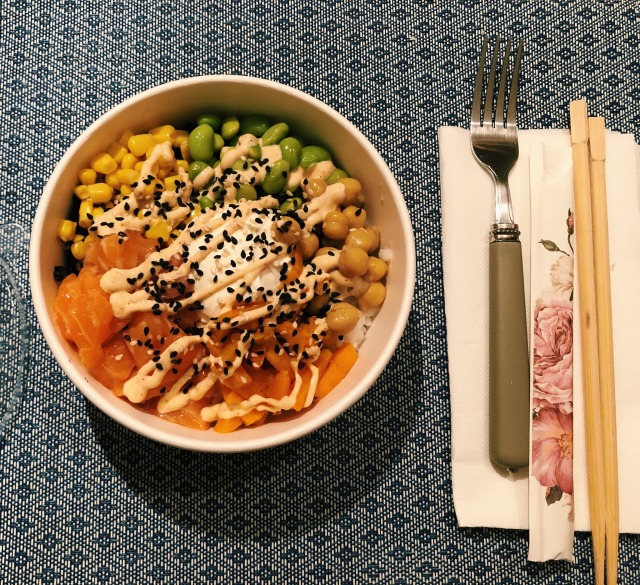
Physiology notes and tasty poke


May 12th 2021
Neuroanatomy and coffee ☕️
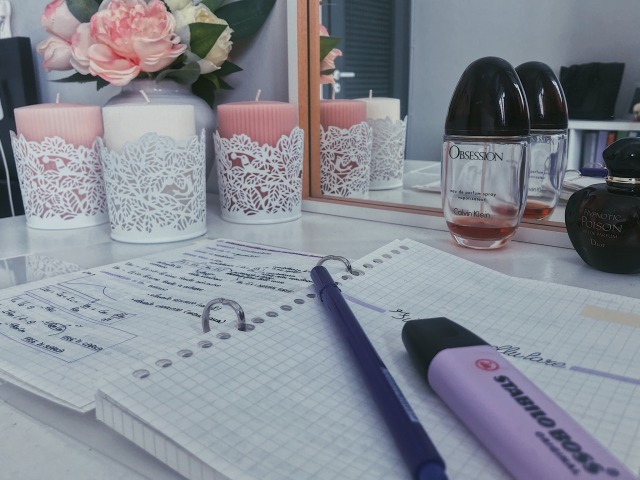

May 4th 2021
My favorite corner of my room

